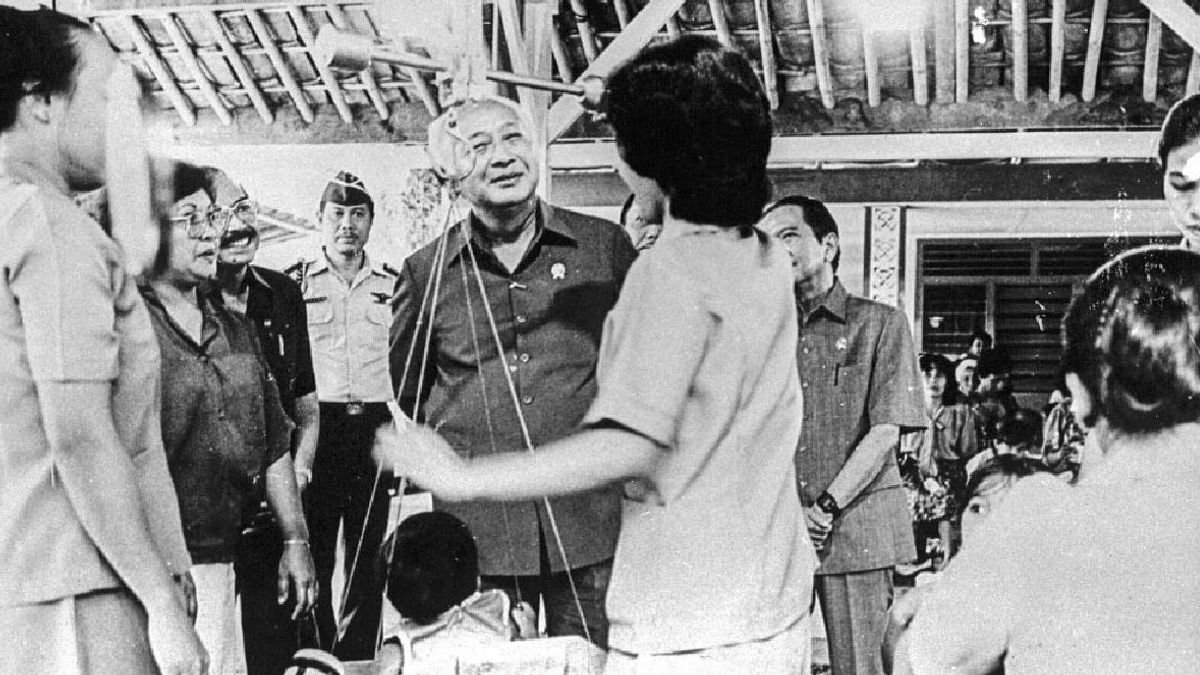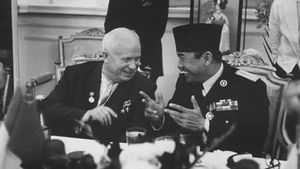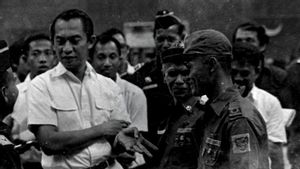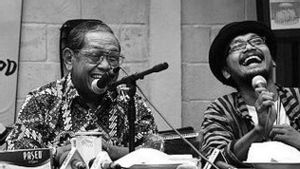JAKARTA History today, 34 years ago, June 8, 1989, President Soeharto received a special birthday gift. The United Nations (UNPA) awarded him the United Nation Population Awards. The award was given to Suharto because he was able to reduce the number of Indonesians' increase.
Previously, Suharto and the New Order (Orba) dared to appear different from the Old Order government. "If the old Order supports the narrative of families with many children, the New Order is the opposite. Two children are enough," he said.
The narrative of many children, many sustenance, dominated the minds of the Indonesian people at the beginning of independence. Health matters and mental problems of a woman are calculated later. The old Order fully supports this.
The owner of power considers the increase in population to be like a power. A power to become a great nation. This power makes anyone who inflames birth restrictions opposed here and there.
Mainly, those who inflame the Family Planning (KB) program. Those who inflamed KB were deemed to have violated Human Rights (HAM). Recently, the narrative of many children's sustenance began to be reduced in the Soeharto and New Order eras.
All of this was proven by the New Order's full support for the KB program. Suharto's blessing of the establishment of the National Family Planning Institution (LKBN), then known as the National Family Planning Coordinating Board (BKKBN) became evidence in 1970.
The New Order also uses all its instruments to support the KB program. From the military to the Golkar Party. The program is expected to have great benefits for Indonesia in the future. New Order wants the welfare of women and their families to increase.
Untuk itu, lanjut Ketua Umum Golkar, Sudharmono program pelaksanaan KB itu tidak hanya penting bagi keluarga yang bersangkutan saja. Akan tetapi juga memiliki maksin yang penting bagi negara dan bangsa. Dengan demikian apabila keluarga berencana itu maju, maka kesejahteraan pun akan dapat meningkat.
Then the General Chairperson who called the implementers of the KB Lestari program as a development fighter in the field of population, hoped that the KB Lestari participants would become pioneers, role models in the field of KB, and could become national fighters and development fighters fought for by Golkar, "wrote in a Media Karya Magazine report entitled Golkar Supports the Success of Family Planning (1987).
Suharto's concern in reducing the growth rate of the population has received appreciation everywhere. At that time, Indonesia, whose population growth was predicted to increase sharply, could be suppressed. Suharto was able to suppress population growth of up to tens of millions of people until finally his power.
This success was also recognized by the international community. The UN did not remain silent. As an appreciation, the UN gave the UNPA award to Suharto on June 8, 1989, or on Suharto's birthday. The UNPA award was given at the United Nations headquarters in the United States. This achievement later became one of the most beautiful gifts for Suharto and also Indonesia.
In a ceremony at the UN headquarters, about an hour, UN Secretary General Javier Perez de Cuellar will hand over the United Nations Population Awards (UNPA) to President Suharto. The same award will be received by M. Aissah Agbetra, Minister of Health Togo. So, President Suharto will read his speech, 35 pages thick.
Pak Harto is the first ASEAN head of state to receive this award. Since the awarding of the population award was decided by the UN General Assembly, 1981, there have been several integral figures and institutions who have received the award: Indian Prime Minister Indira Gandhi, 1983. Professor Carmen A. Miro of Panama, Professor total J. Segal of the US, 1984, and Bangladeshi President Hossain Mohammad Ershad, 1987, "said Amran Nasution and Sidartha Pratidina in his article in Tempo Magazine entitled An Award on Birthday (1989).
SEE ALSO:
The English, Chinese, Japanese, Arabic, and French versions are automatically generated by the AI. So there may still be inaccuracies in translating, please always see Indonesian as our main language. (system supported by DigitalSiber.id)














